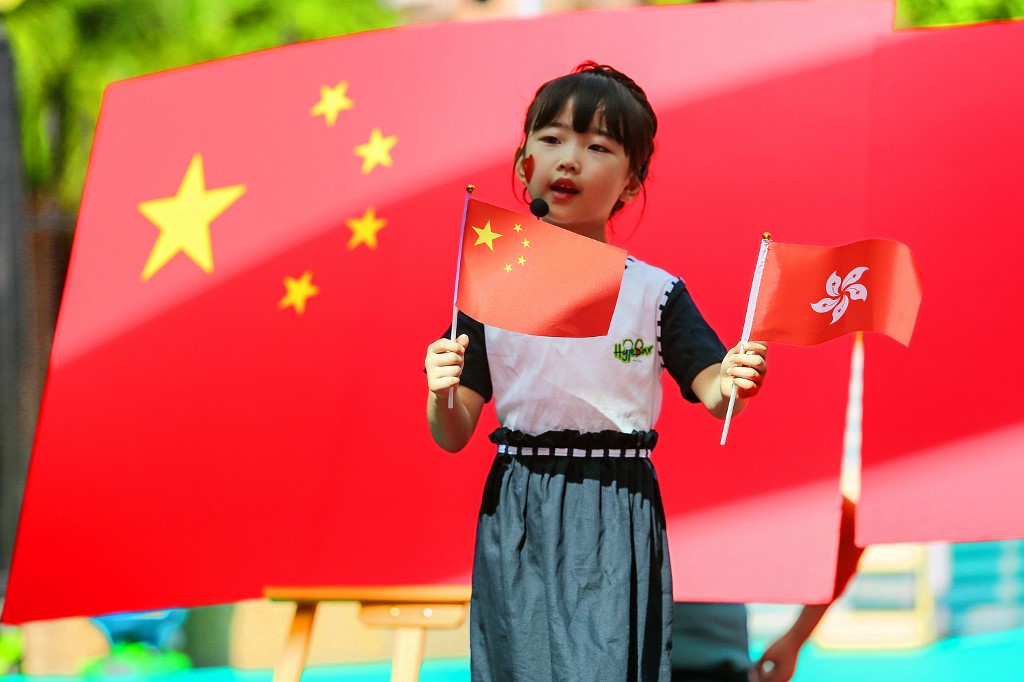Hong Kong is now counted as part of China and has been excluded from a US think tank’s economic freedom index. The Heritage Foundation scrapped the city’s 2021 listing saying that its economic policies are “ultimately controlled from Beijing.”
In the 27th edition of the Index of Economic Freedom, Hong Kong is no longer listed separately despite topping the chart for 25 consecutive years.

Hong Kong has been ranked the freest economy in the world since 1995, until it was overtaken by Singapore in 2020 after the foundation cited “intensifying uncertainties related to security issues” due to the government’s response to the 2019 anti-extradition bill protests.
The Hong Kong government often boasted of the accolade in promotional material for the city. In 2019 – after Hong Kong became the only economy that had scored over 90 – Financial Secretary Paul Chan said: “This achievement reaffirms the Government’s steadfast commitment in upholding the free market principles over the years.”
In this year’s index, the conservative think tank explained that the ranking would only include “independent countries where government exercise sovereign control of economic policies.”
“No doubt both Hong Kong and Macau, as Special Administrative Regions, enjoy economic policies that in many respects offer their citizens more economic freedom than is available to the average citizen of China, but developments in recent years have demonstrated unambiguously that those policies are ultimately controlled from Beijing,” the report read.
The Index’s website had also removed Hong Kong’s standalone page, and no results were shown when “Hong Kong” was typed in the search bar.

Singapore topped the ranking again this year, with a score of 89.7.
China scored 58.4, and was ranked 20th among the 40 economies in the Asia-Pacific region, and 107th in the world among the 178 countries examined.
The report also stated that China’s score was dampened by a decline in trust and destabilised global relationships due to issues such as “restrictions on Hong Kong’s autonomy, the persecution of China’s Uighur minority, and Beijing’s cyberwarfare activities.”
‘Political bias’
Speaking in Beijing, Hong Kong finance chief Paul Chan said he did not agree with the foundation’s analysis: “When they arrived at that decision, they must have been clouded by their ideological inclination and political bias,” he said according to RTHK.
Billy Mak, associate professor of the Department of Finance and Decision Sciences at the Hong Kong Baptist University, told HKFP that the think tank’s decision to stop listing Hong Kong as an independent economy could harm the study’s credibility: “This is an academic issue, if you use the previous classifications, you can conduct different comparisons between countries and regions over the years, but now that you suddenly changed the evaluation criteria, there may be discrepancies between the new and old data.”
Mak added that by not listing Hong Kong as a separate economy in the index, it may be difficult for researchers or the government to understand and compare the situation in Hong Kong to those of other regions.
HKFP has reached out to the government for comment.
Support HKFP | Policies & Ethics | Error/typo? | Contact Us | Newsletter | Transparency & Annual Report | Apps
Help safeguard press freedom & keep HKFP free for all readers by supporting our team

LATEST FROM HKFP
HKFP has an impartial stance, transparent funding, and balanced coverage guided by an Ethics Code and Corrections Policy.
Support press freedom & help us surpass 1,000 monthly Patrons: 100% independent, governed by an ethics code & not-for-profit.










